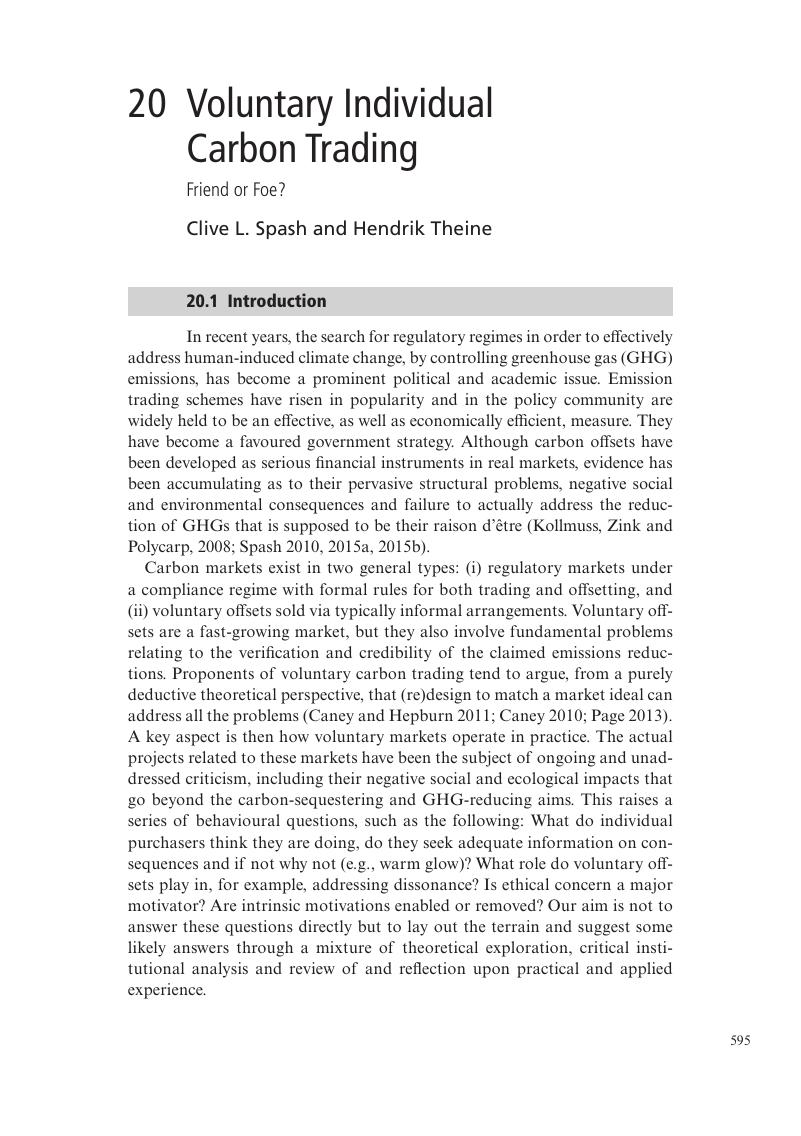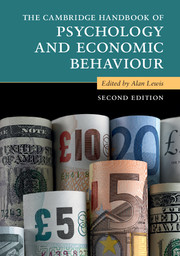Book contents
- The Cambridge Handbook of Psychology and Economic Behaviour
- The Cambridge Handbook of Psychology and Economic Behaviour
- Copyright page
- Dedication
- Contents
- Plates
- Figures
- Tables
- Notes on Contributors
- Introduction
- Part I Theory & Method
- Part II Finance
- Part III Private Sector Consumer Behaviour and the Firm
- Part IV Public Sector Consumer Behaviour
- Part V Environment
- 16 Towards Sustainable Lifestyles
- 17 Understanding Residential Sustainable Energy Behaviour and Policy Preferences
- 18 Household Production of Photovoltaic Energy
- 19 Economic and Psychological Determinants of Ownership, Use and Changes in Use of Private Cars
- 20 Voluntary Individual Carbon Trading
- Part VI Biological Perspectives
- Part VII New Horizons
- Index
- References
20 - Voluntary Individual Carbon Trading
Friend or Foe?
from Part V - Environment
Published online by Cambridge University Press: 01 February 2018
- The Cambridge Handbook of Psychology and Economic Behaviour
- The Cambridge Handbook of Psychology and Economic Behaviour
- Copyright page
- Dedication
- Contents
- Plates
- Figures
- Tables
- Notes on Contributors
- Introduction
- Part I Theory & Method
- Part II Finance
- Part III Private Sector Consumer Behaviour and the Firm
- Part IV Public Sector Consumer Behaviour
- Part V Environment
- 16 Towards Sustainable Lifestyles
- 17 Understanding Residential Sustainable Energy Behaviour and Policy Preferences
- 18 Household Production of Photovoltaic Energy
- 19 Economic and Psychological Determinants of Ownership, Use and Changes in Use of Private Cars
- 20 Voluntary Individual Carbon Trading
- Part VI Biological Perspectives
- Part VII New Horizons
- Index
- References
Summary

- Type
- Chapter
- Information
- The Cambridge Handbook of Psychology and Economic Behaviour , pp. 595 - 624Publisher: Cambridge University PressPrint publication year: 2018
References
20.8 References
- 4
- Cited by



